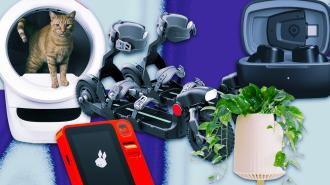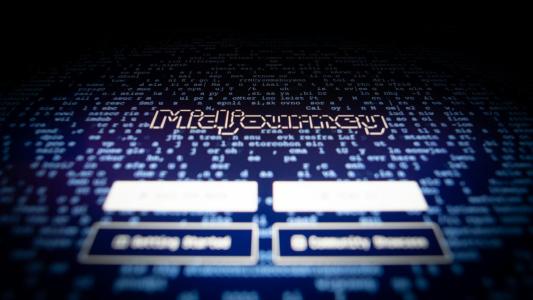This article is an installment of Future Explored, a weekly guide to world-changing technology. You can get stories like this one straight to your inbox every Thursday morning by subscribing here.
Once a year, the global tech industry gathers in Las Vegas for the Consumer Electronics Showcase (CES), a massive trade show where startups, tech giants, and everything in between can debut and demo their latest products.
This year’s event just wrapped on January 12, and since CES is like Future Explored come to life, we’re highlighting some of the most exciting tech from among the more than 4,000 exhibitors — including a few gadgets that Freethink staff got a chance to demo firsthand.
Rabbit’s clever voice assistant
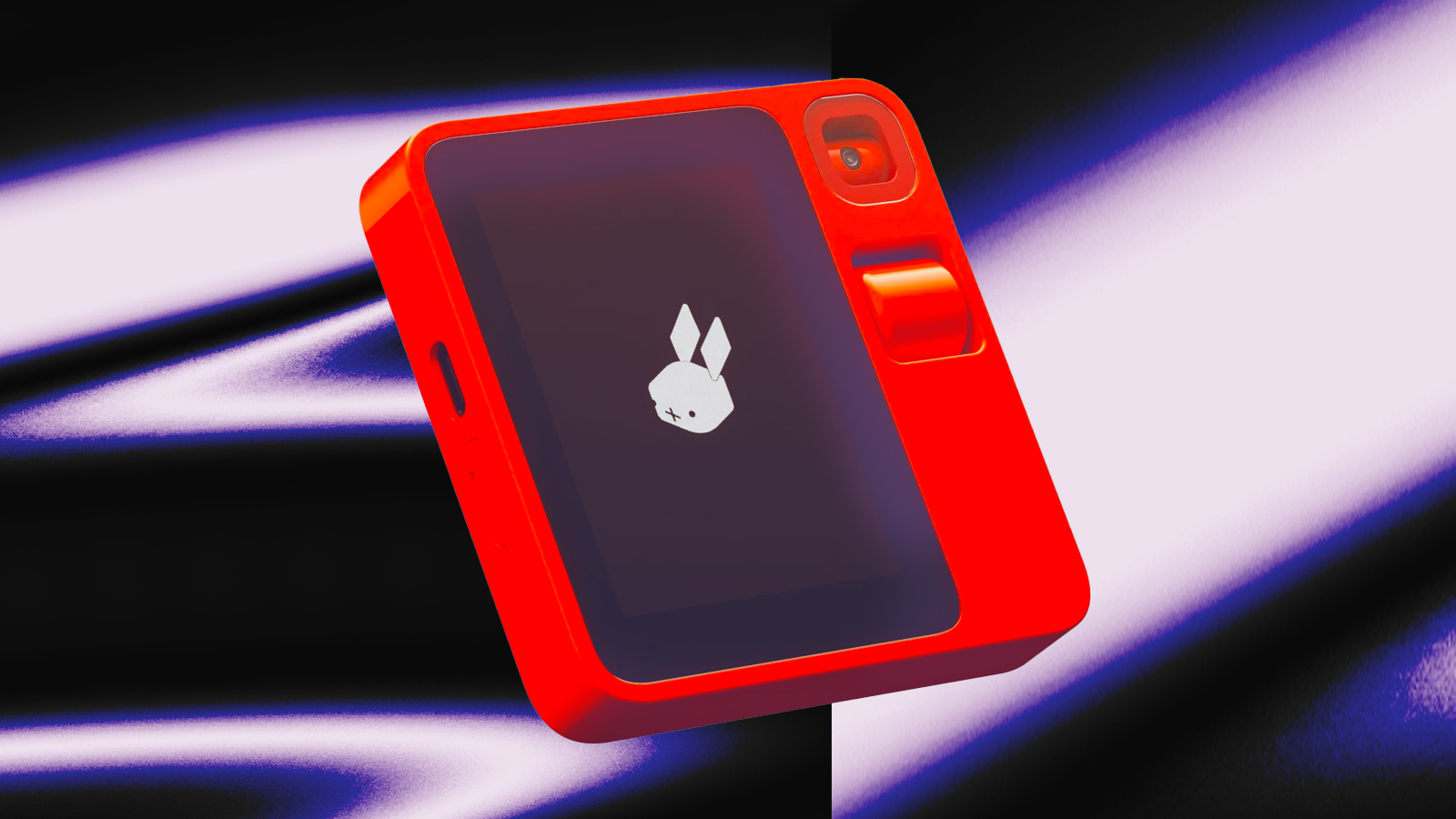
AI startup Rabbit used CES 2024 to debut R1, a palm-sized device that uses AI to carry out tasks for you.
Instead of navigating countless apps on your smartphone, you activate those apps on your R1 and hold a button on the side of the device while saying a command, which can be as simple as “Order an Uber to take me to work” or as complex as “Plan a family vacation to London.”
R1 costs $199, and Rabbit sold out of its first batch of 10,000 devices within 24 hours of debuting the tech at CES 2024. At the time of writing, it is taking preorders for the fourth batch, which it expects to deliver in June-July 2024
GyroGear’s tremor-reducing glove
Medtech startup GyroGear caught Freethink’s eye (and the eye of Microsoft CEO Satya Nadella) with its GyroGlove, a wrist-worn device that uses gyroscope technology to automatically counter and cancel out Parkinson’s-caused hand tremors.
Such tremors are one of the most common symptoms of Parkinson’s, and they can rob a person of their ability to work, drive, or even feed themselves, making the GyroGlove a potentially life-changing piece of technology.
BMW’s remote-controlled car
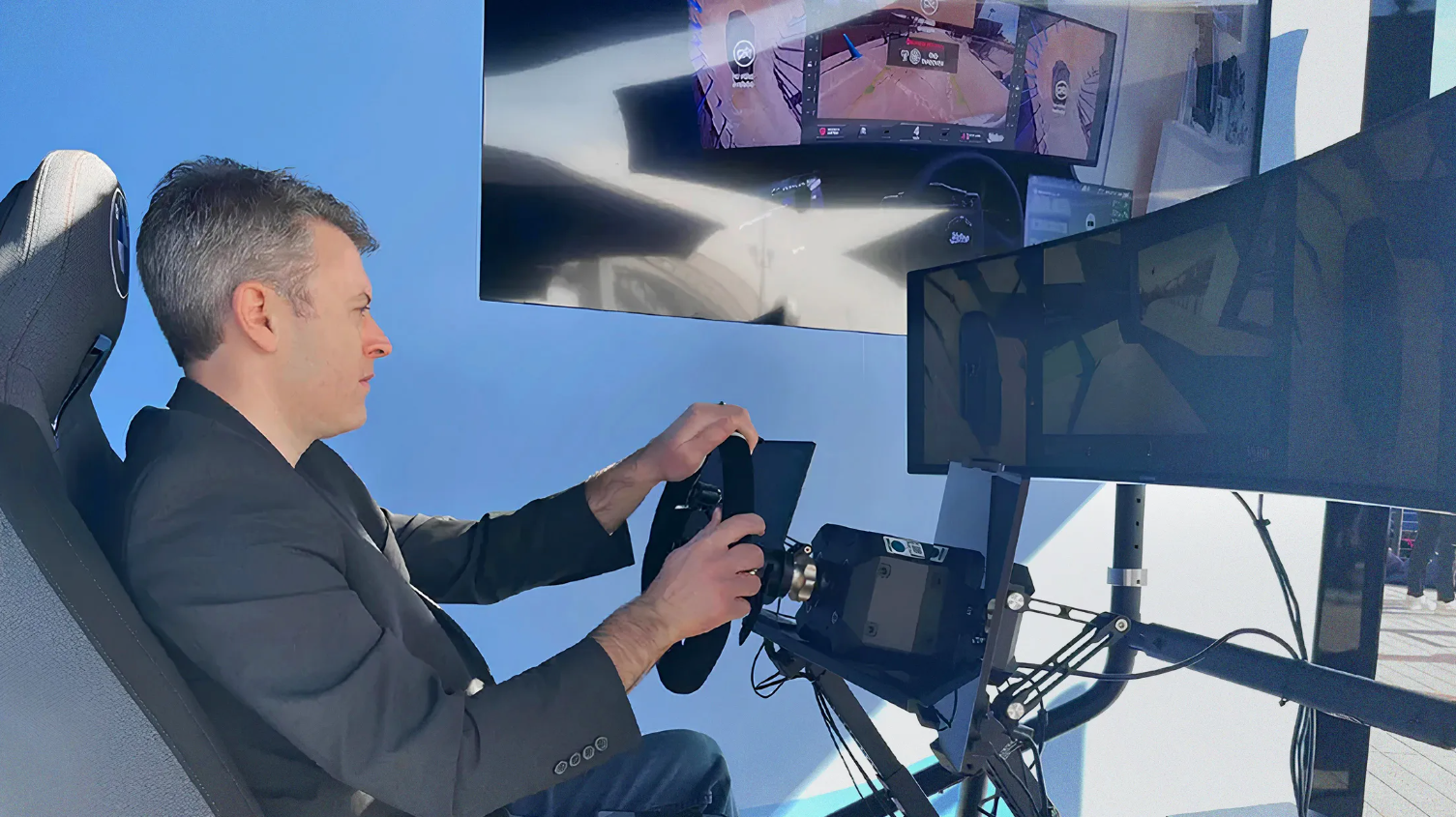
Luxury carmaker BMW was onsite at CES 2024 to demo its Remote Valet feature, which allows a person sitting behind the wheel of a driving rig to take control of an actual BMW.
The idea is that you could exit your car at the entrance to an airport or restaurant, tap a button on an app, and a remote driver — a human in an office somewhere, not an AI — would take control, using footage from the vehicle’s cameras to drive it to a parking spot for you. When you’re ready to leave, tap a button, and they’ll remotely drive the car to you.
BMW told Freethink that its vehicles are already equipped with all of the hardware needed for Remote Valet — the company just needs to tweak the software, which means the tech could roll out relatively soon.
Whisker’s litter-cleaning robot
Nick Tucker, host of Freethink’s Hard Reset — a video series about rebuilding the world from scratch — is well known around these parts for his love of cats, so it was no surprise he swung by pet tech company Whisker’s booth at CES 2024 to see “a robot that eats your cat’s poop.”
Technically, the Litter Robot doesn’t eat poop. It just separates it from the rest of the litter so that you don’t have to go through the trouble of scooping it out. It also monitors your cat’s weight and bathroom activity, alerting you to any potential health issues through a companion app.
Neoplants’ air-purifying pothos
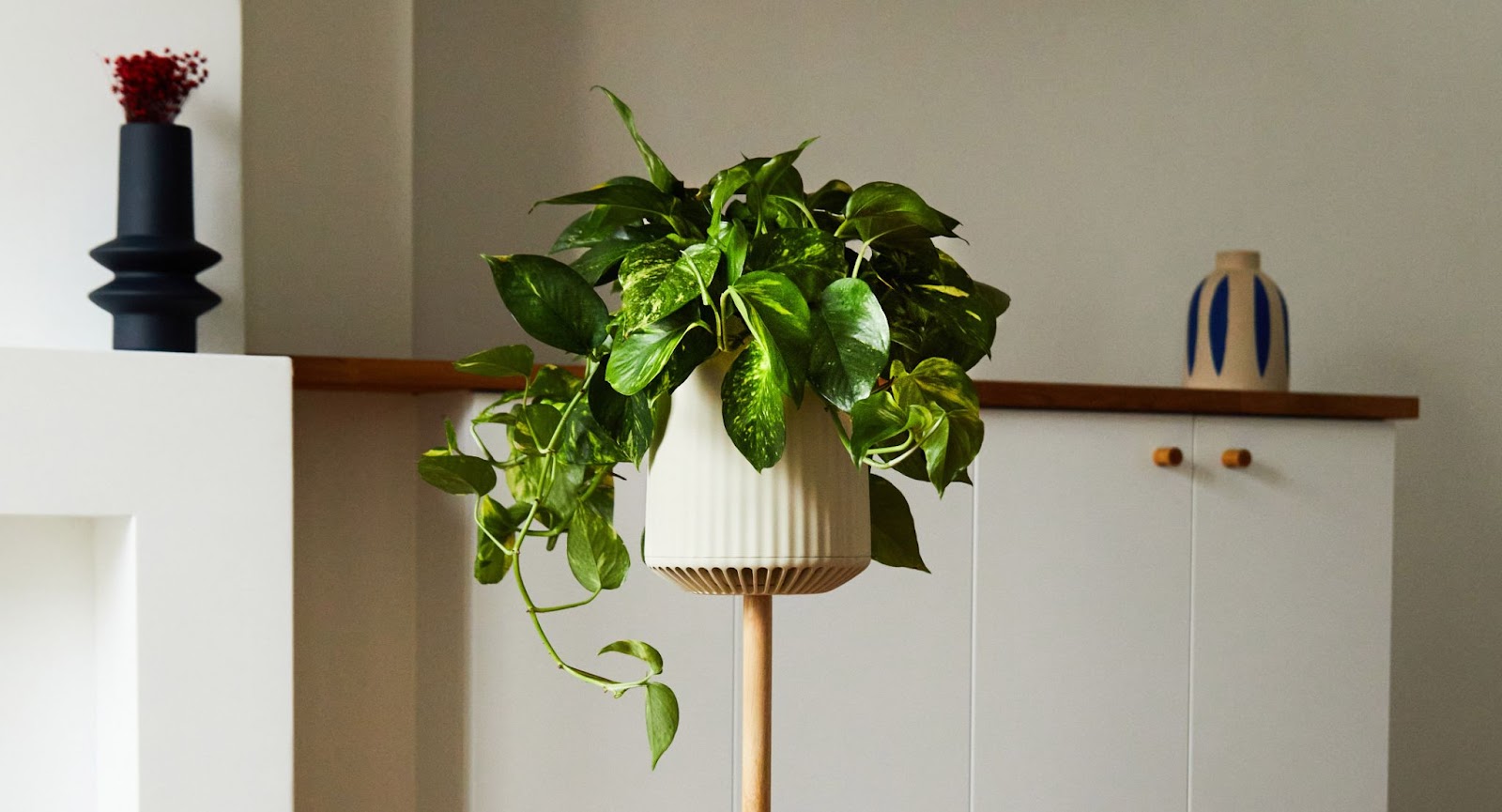
French startup Neoplants first landed on our radar in 2022 with the announcement that they’d genetically engineered a houseplant to be 30 times more efficient at pulling common pollutants from the air than its unedited counterparts.
Freethink caught up with the company at CES 2024, where they told us they expect to begin shipping their bioengineered houseplants to customers in North America early this year.
Skwheel’s electric skis
If you’re looking for a new eco-friendly personal transportation option — and you have a need for speed — French startup Skwheel showcased what it says are the world’s first electric skis at CES 2024.
Called the Skwheel-One, the system is basically like strapping an electric scooter onto each of your feet. You then use a remote to accelerate or brake the skis, which can be used on any terrain, according to Skweel.
The system has a top speed of 16 mph, unless set up for use on private land, in which case they can be modified to go 50 mph. The motorized skis are expected to retail for $2,625, but Skweel is currently accepting pre-orders via IndieGoGo for $1,750 a pair.
Cappella’s baby translator
Most babies only say their first word when they’re 12-18 months old, and even then, figuring out what they want when they’re crying can be a frustrating guessing game for parents.
To try to alleviate some of that frustration, Cappella — a startup founded by engineers from MIT, Harvard, and Stanford — partnered with hospitals to train an AI to translate a baby’s cries. They then put the tech into a baby monitoring app, which they demoed at CES 2024.
After downloading the app on two phones, you place one near your baby at night. If they cry, the app will alert you on the other phone — like lots of baby monitor apps — but also tell you know the most likely cause, such as hunger or pain.
Exeger’s flexible solar cells
Today, almost all consumer devices fall into one of two categories: you either have to have the tech plugged into an outlet during use, or you need to power it with batteries that will inevitably require recharging or replacing.
At CES 2024, Freethink encountered a third option: a flexible solar cell technology called “Powerfoyle.” Developed by Swedish company Exeger, Powerfoyle is efficient enough to power TV remotes, wireless headphones, and more using just ambient light, inside or outside.
OrCam’s AI-powered “ears”
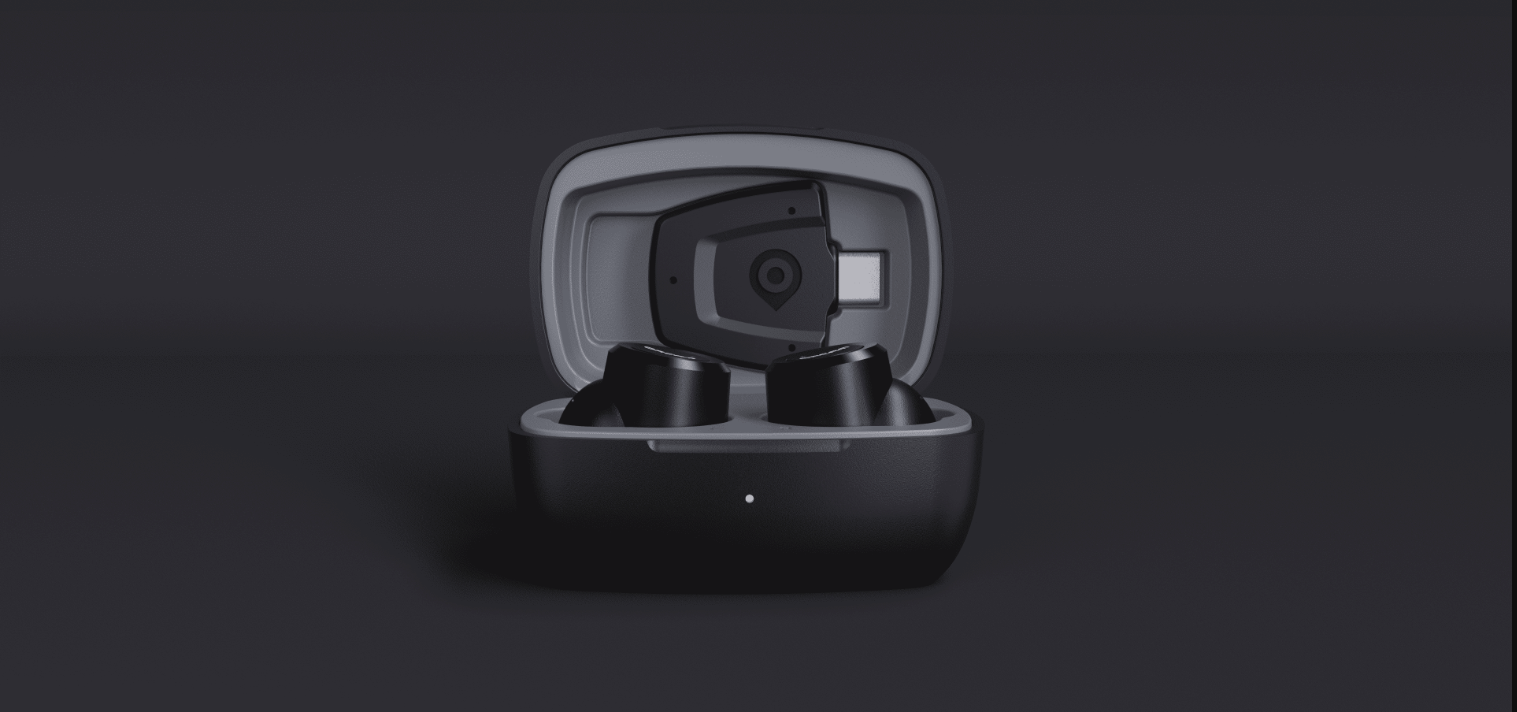
An estimated 40 million American adults have some level of hearing loss, and while hearing aids can help them in many situations, they aren’t so useful in crowded rooms — at that point, the tech amplifies all the sounds in the room, making it hard to listen to any one voice.
Assistive tech developer OrCam Technologies debuted a device, called OrCam Hear, at CES 2024 that aims to address this problem.
It consists of a dongle you plug into your smartphone and a pair of earbuds. An AI-powered app “listens” to the world around you and creates a profile for each speaker or noise. You can then choose which profiles you want to hear through the earbuds and which you want to mute.
HaptX’s haptic gloves
Virtual reality is increasingly being used for job training, but because the tech typically engages just two of a trainee’s senses — sight and sound — the VR experience still isn’t quite the same as what they’ll encounter in the real world.
To overcome that limitation, tech startup HaptX has developed haptic gloves that use microfluidics to provide tactile feedback, allowing your hands to “feel” objects you touch in VR.
The US Army is currently using the gloves to train medics on simulated battlefields, but when Freethink tested them out at CES 2024, it was in a much less stressful situation: we petted a virtual cat.
We’d love to hear from you! If you have a comment about this article or if you have a tip for a future Freethink story, please email us at [email protected].
